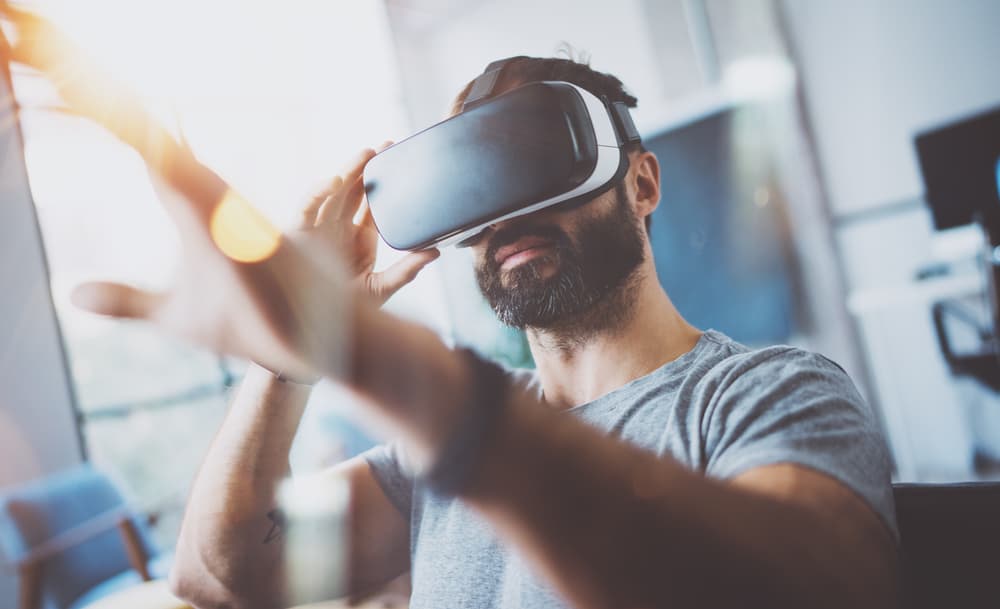When you mention virtual reality, most people’s minds immediately go to video games, but it isn’t just about gaming.
Patrick Bordnick, dean of Tulane University’s School of Social Work, has been investigating the potential use of virtual reality in addiction treatment since the technology was in its infancy more than a decade ago. Today, he’s researching whether it can be used by cognitive behavioral therapists to help addicts confront and overcome triggers that lead to relapse.
For someone struggling with addiction, being in a situation where they’re surrounded by triggers can lead to relapse. But if that person is experiencing that situation under the guise of virtual reality, they can actually work with a cognitive behavioral therapy to identify and control those triggers.
Bordnick and his team of researchers create different VR environments for different drugs where certain triggers (a substance, a person, a time of day, etc.) are present. They’re making these VR worlds as realistic as possible, creating different scenarios for different drugs, including an office courtyard, a gas station and a pizza party. Specific triggers, whether it’s a particular substance, a person or a time of day, are present.
“Video games create fantasy, but in my lab, it’s reality,” Bordnick said in an interview with Motherboard. “We have to make it real. The drink can’t look like some drink that you’d see in ‘World of Warcraft’, or something like that. An alcohol-dependent person knows their drink and what it looks like. If it’s not the right color, if it doesn’t look like a real whiskey, that’s not gonna make that situation applicable to them.”
The team uses a VR headset and a treadmill to make patients feel more present in the environment, but smell is what really completes it. The marijuana scenario is set at a pizza party, so it smells like pizza and marijuana smoke. Scenarios that take place outdoors smells outdoorsy. Bordnick hopes the extreme realism evokes visceral reactions that patients can immediately address with a professional therapist.
The lab has successfully treated cigarette smokers, but now they’re ready to work on harder substances like heroin. Eventually, Bordnick wants virtual reality addiction therapy to be available to the masses, and he seems to be on track. His lab is working with a technology startup to create immersive VR environments patients can access through a smartphone app. It’s set to launch in the next 6 to 12 months.
Although Guardian IOP’s individualized recovery plans are rooted in evidence-based treatment, we are proponents of alternative therapies. As virtual reality becomes more ubiquitous in the realm of addiction recovery, we look forward to offering our clients the latest in cutting-edge treatments. To learn more about our addiction treatment programs, contact us at 561.274.6133.

Reviewed for accuracy by:
Anna Marie Barrett LCSW, CYT
Anna earned her Masters of Social Work at Barry University in Miami, FL in 2017 and completed her internship in co-occurring disorders. Anna has a Bachelors of Art in Religious Studies from Naropa University and is a certified yoga and meditation instructor. Anna has received specialized training in somatic counseling with an emphasis on body-centered psychotherapy.




















